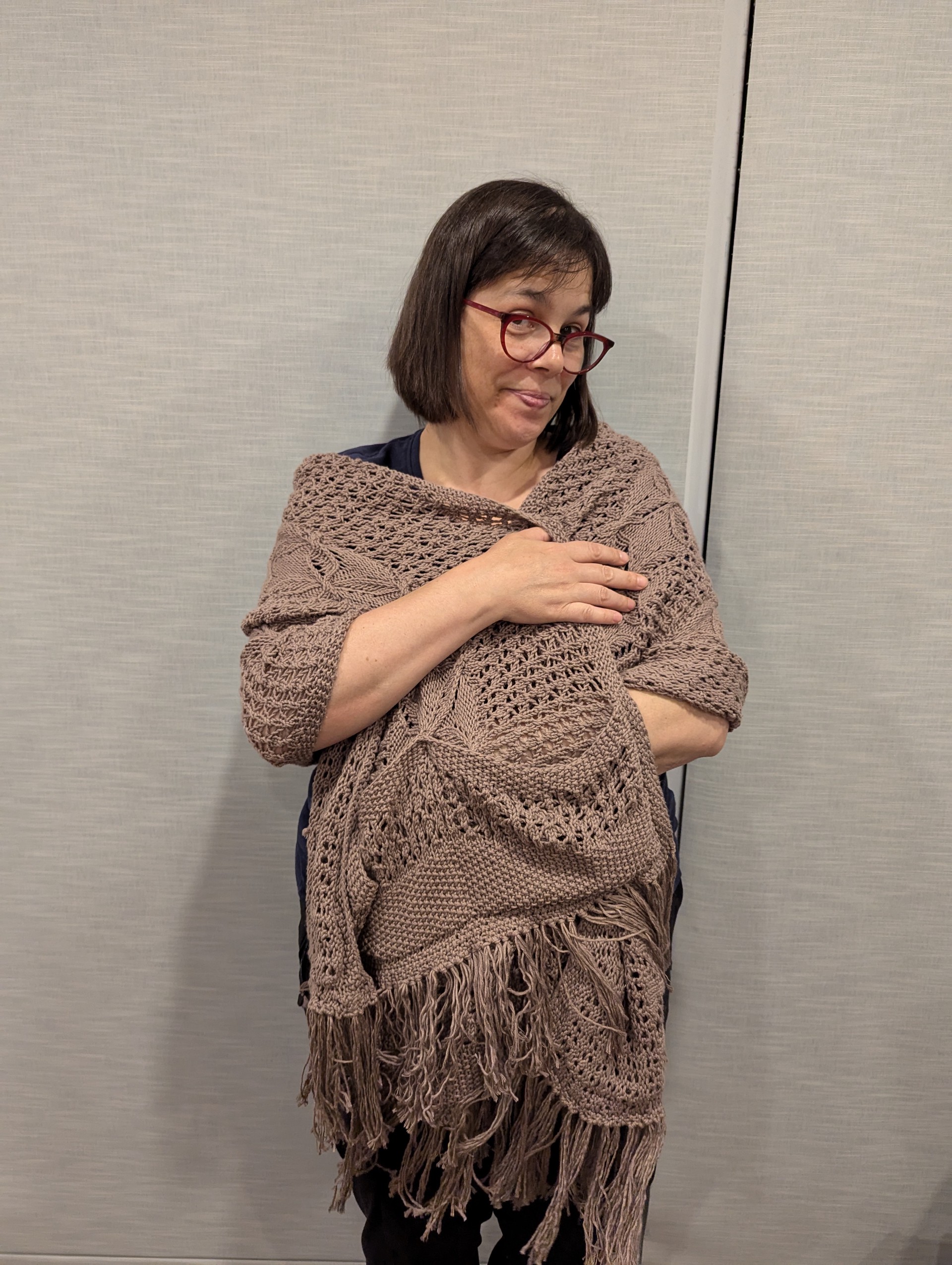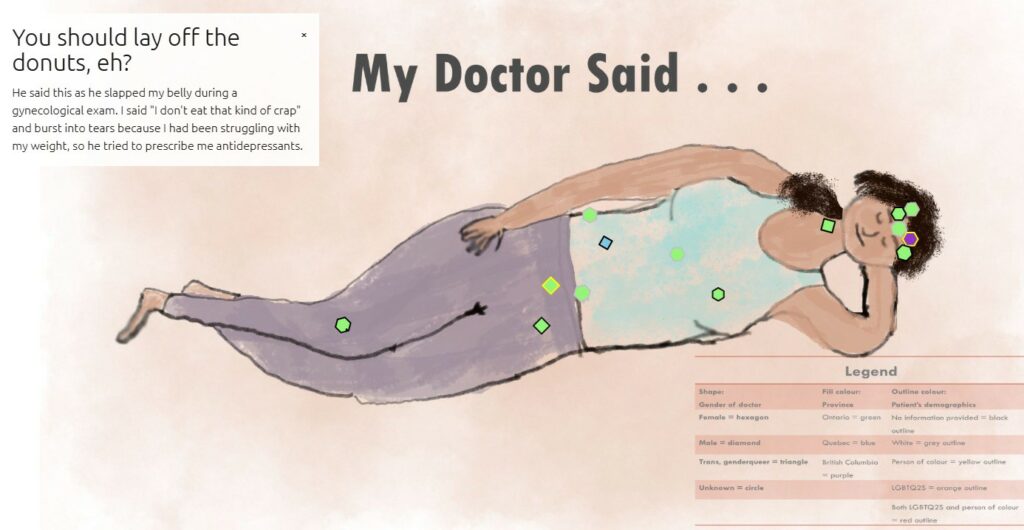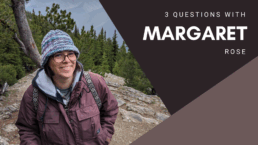Three questions with... Margaret!
Our lab is growing! In our Three Questions series, we’re profiling each of our members and the amazing work they’re doing.
This post introduces Margaret Rose, research assistant at the ScholCommLab. In this interview, Margaret offers a glimpse into some of her inspiring projects and reflects on a piece of advice from her brother that has guided her for nearly 30 years.

Q#1 What are you working on at the lab?
I’m working on the ROARA project as a research assistant, helping to update and expand the dataset of APC prices from archived journal websites. This work is really valuable because researchers will be able to use the dataset to figure out patterns in publisher habits and the flow of money in the academic publishing industry. This kind of data is vital to support the push for open access publishing, and I’m glad to be part of the project.
Q#2 Tell us about a recent paper, presentation, or project you’re proud of.
My work in my Master of Information Studies (MIS) courses at uOttawa has been really varied, which is fun. I’ve especially enjoyed hands-on projects working with data in different ways, such as the one we did in Dr. Stefanie Haustein’s Knowledge Organization class to examine the structure and organization of OpenAlex concepts that are part of its machine indexing system.
I think the project I’m most proud of is the data art piece I created called "My Doctor Said..." for the Big Data, Culture and Society course with Dr. Jada Watson. The artwork features anonymized first-person stories collected from Canadian women mapped as pop-ups over a drawing of a woman’s body. This was paired with a research essay on the medical treatment of women. Working on this project allowed me to try out some data collection and visualization tools in a creative way. I’m currently developing it into an Omeka exhibit so it can be shared. I should really get on that to get it finished!

Q#3 What’s the best (or worst) piece of advice you’ve ever received?
“You don’t need to figure out what you want to be when you grow up – lots of people never do. Just figure out what you want to do next.” My older brother said this to me when I was fussing about my lack of direction about 30 years ago. I still don’t have much sense of direction, but I’m always finding interesting things to do next.
DOI: https://doi.org/10.59350/scholcommlab.5435
Three questions with... Lucía!
Our lab is growing! In our Three Questions series, we’re profiling each of our members and the amazing work they’re doing.
This post introduces Lucía Céspedes, a research associate at ScholCommLab. In this interview, Lucía tell us about her exciting work and encourages us to dare to write, rewrite, and publish, while letting go of the unachievable desire to read it all.

Q#1 What are you working on at the lab?
I joined the Lab in 2022 to work on a project related to the use of social media by physicians to communicate reliable health information and fight misinformation. It was a lovely way to reconnect with my background in Social Communication and Science Journalism after dedicating my PhD studies to Sociology of science. Since my current position at Érudit involves a lot of reflection and discussion about tendencies and practices of scholarly publication and open science, the Lab is an amazing forum to keep up to date with my colleagues’ research, share information, and just generally collaborate and support each other.
Q#2 Tell us about a recent paper, presentation, or project you’re proud of.
As a multilingual scholar and Linguistics nerd, I’m very drawn to analyzing how certain power structures of the scientific field are channelled through languages, and how those dynamics may be changing in the context of open science.
In a paper published earlier this year, we studied the coverage, accuracy and completeness of metadata about language of publication in OpenAlex. We manually verified the language of more than 6000 articles indexed in the database vis à vis the actual language of each full text. We found a much more diverse linguistic landscape in OpenAlex than in other more restrictive, more elitist indexes, which is great in terms of non-Anglophone scholars’ representation! Even so, this portrait of multilingual science could be even more accurately depicted with improvements in OpenAlex’s metadata quality. It was great to feel we were contributing to the development of a very promising new source of information – and, personally, coordinating such a large team was an exciting challenge.
Q#3 What’s the best (or worst) piece of advice you’ve ever received?
Let go of the illusion of exhaustivity – none of us will ever be able to read everything there is to read about a specific topic. At a certain point, you have to be confident enough to stop absorbing others’ texts and start crafting your own. And always remember that a first draft is just that, a first draft. It’s perfect just by existing, because its only purpose is to be the starting point from where your ideas will begin to take shape. Longer, more polished, better texts will follow! However, it’s extremely easy to get lost in the never-ending loop of revising and re-revising. So, as my thesis supervisor would say, start writing to stop reading, and commit to publishing to stop rewriting!
Check out Lucía's Bluesky account for open access updates, science policy discussions, football opinions, and carpinchos [capybara] memes!
Read her publications on her ORCID profile.
DOI: https://doi.org/10.59350/scholcommlab.5380
Three questions with... Diego!
Our lab is growing! In our Three Questions series, we’re profiling each of our members and the amazing work they’re doing.
This post introduces Dr. Diego Chavarro, a Research Associate at the ScholCommLab. In this interview, Diego tells us what excites him most about his work. He also reflects on a transformative piece of advice he received from his mentor, which shaped his approach to sharing his research and cultivated in him a mindset of perseverance and lifelong learning.

Q#1 What are you working on at the lab?
I am working with Dr. Juan Pablo Alperin on assembling a database of bibliographic information from journals using Open Journal Systems (OJS), with the aim of building a quality scientometric database that can be used to perform science of science studies. This database is unique, as many journals and documents cannot be found in mainstream databases such as Scopus or Web of Science. Analyzing these data will uncover hidden portions of global science that are underestimated and marginalized by current search engines, indexers, organizations, and governments.
Q#2 Tell us about a recent paper, presentation, or project you’re proud of.
In our recent paper titled "On the Open Road to Universal Indexing: OpenAlex and Open Journal Systems," we explored the indexing of journals using Open Journal Systems (JUOJS) by OpenAlex, revealing that 71% of the 47,625 active JUOJS have at least one article indexed, with a significant reliance on Crossref DOIs for inclusion—97% of journals using Crossref DOIs were indexed. Our findings highlight systemic disparities in global scholarly visibility, particularly the underrepresentation of resource-limited journals from low-income countries and non-English languages, emphasizing the need for inclusive indexing practices that address financial, infrastructural, and linguistic barriers. This study not only critiques the current indexing landscape but also provides a theoretical framework for understanding the complexities of scholarly infrastructure dependencies, advocating for a more equitable approach to global knowledge representation.
"I am passionate about sharing science existing outside mainstream platforms, such as knowledge produced in non-dominant places and languages. Raising awareness about its importance is crucial because when we exclude this knowledge from scientific discourse, we erase valuable insights that could benefit us all. This weakens science as a whole. I want to contribute to preventing this marginalization, ensuring a more enriched scientific landscape."
Q#3 What’s the best (or worst) piece of advice you’ve ever received?
During a thought-provoking debate with my mentor, José Luis Villaveces, I asserted that a good researcher should only publish their best work and not publish for the sake of it. With a condescending smile, he replied: “Do you think great soccer players only play when they're at their best? They practice and play through all kinds of matches to improve.” This moment was a revelation for me; I realized that publishing is not just about showcasing perfection but rather about contributing to the dialogue, learning through the process, and evolving as a researcher. Embracing this perspective has not only encouraged me to share more of my work, even when it feels unfinished, but it has also fostered a mindset of continuous growth and resilience in my academic journey.
Find a list of Diego's publications here.


